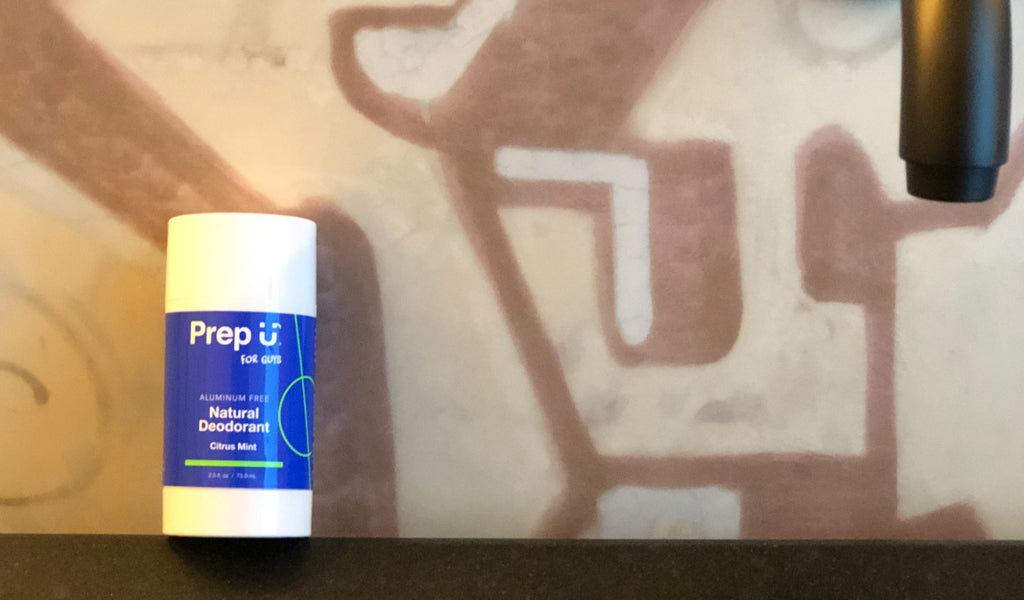The Sweat Spot: Natural Deodorant vs Antiperspirants
May 01, 2019
Deodorant. Antiperspirants. Natural deodorant. Charcoal Deodorant. Choosing the right odor-fighting, sweat-defending product has never seemed more complicated. For years, deodorant was the least of your worries, but now, just in time for your son to add it to his hygiene routine, the options seem endless, not to mention, overwhelming. It’s time to break it all down.
1. Sweat is not odor.
Let’s establish this first. Sweat is a natural secretion of fluid that happens all over our body, all the time, to regulate temperature. We just happen to notice the emotionally charged, stress-triggered sweat spots because they pop up in unsightly places like armpits, palms and head (exercise, not stress, is the culprit behind those other unwanted sweaty areas like crotch and butt. Boys, you know what we’re talking about.)
2. Then what’s BO?
Since sweat itself doesn’t stink, body odor is actually the result of our skin bacteria breaking down those sweat secretions. The apocrine gland, which is conveniently awakened during puberty, mixes with this skin bacteria to deliver the stink we all know so well. Between exercise and emotion, we’re all susceptible to BO, but our puberty-stricken boys really hit the jackpot.
3. Cue the deodorant…or antiperspirant?
Yes, this is where your not-so-simple choice comes in. Know first that although the terms are often used interchangeably, antiperspirants and deodorants are not the same. Antiperspirants actually aim to control sweat and body odor by preventing sweat to reach the skin surface where the bacteria lives and thus, causes odor. Deodorants, however, only work to defend against odor. Therein lies the problem. To work effectively, antiperspirants typically use chemicals (like aluminum, salts and parabens) and fragrances to block the sweat glands and minimize odor. Until recently, to avoid being the smelly kid in school, you’ve had to sacrifice your body’s natural sweat process and accept whatever ingredients came in that tiny stick or can or spray. Though reports are conflicting about whether antiperspirants and their ingredients are carcinogenic, it’s no longer necessary to roll the dice. There’s now a natural option.
4. Natural deodorant works.
Ditching the risky chemicals and fragrances for aluminum, sulfate and paraben-free formulas, natural deodorants instead use natural ingredients (shea butter, coconut oil, etc.) and essential oils (bergamot, eucalyptus, etc.) to help reduce odor. We repeat: natural deodorants work to prevent odor. They’re not antiperspirants which mean your son will still sweat, but won’t be the smelly kid in class. And more importantly, he won’t absorb all those unnatural ingredients, either.
5. Is charcoal deodorant natural, too?
Sure is. Like natural deodorant, charcoal deodorant is made only with all-natural ingredients plus activated charcoal which actually helps draw out the odor-causing bacteria and toxins we mentioned earlier, keeping skin clean and fresh.
_______
Information on this site is intended for educational and informational purposes only. Any information on this site is not intended to make claims to any unique individual and/or experience.




